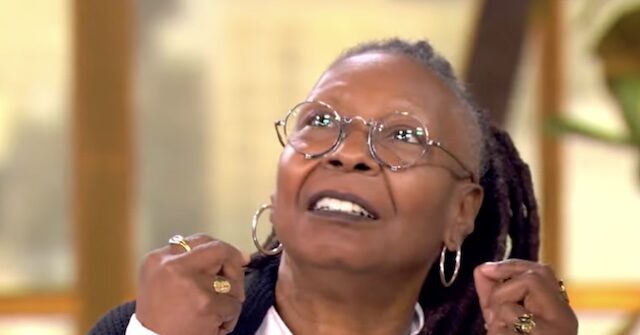On a recent episode of ABC’s “The View,” co-host Whoopi Goldberg had an engaging discussion with former Representative Liz Cheney (R-WY), during which she praised Cheney’s potential as a candidate for the position of attorney general in the event that Vice President Kamala Harris wins the presidential election. Goldberg highlighted Cheney’s qualifications, notably her legal background, and expressed her belief that Cheney could effectively lead important governmental agencies such as the FBI and CIA. This conversation not only shed light on Cheney’s expertise but also signaled a bipartisan appreciation for her moral compass and integrity in a highly polarized political landscape.
Cheney confirmed during the exchange that she is indeed a lawyer, which further substantiated Goldberg’s assertion that Cheney possesses the necessary qualifications to serve in a significant legal role within the government. This endorsement from Goldberg carries weight, given her prominent platform and influence in public discourse. Through her comments, Goldberg aimed to position Cheney as a potential figure of unity, capable of bridging the political divide and restoring a sense of accountability within the federal administration, particularly in the context of rising calls for ethical governance.
Goldberg emphasized the importance of leadership with moral integrity, suggesting that Cheney’s values and principles would make her an excellent choice for such a high-profile position. Cheney’s reputation as a principled leader willing to stand against her party’s extremes was highlighted, demonstrating how individuals from across the political aisle can be recognized for their contributions to governance, even in the face of opposition. The dialogue serves as an example of how public figures can engage in constructive discourse that transcends party lines, especially when the focus is on competence and ethical leadership.
Throughout the discussion, both women displayed a sense of optimism regarding the potential outcomes of the forthcoming election. Cheney’s response indicated a focus on the immediate necessity of ensuring Harris’s election, which underscores the urgency of the political climate and the dire need for ethically grounded leadership at the highest levels of government. By framing the conversation in this way, Cheney and Goldberg not only communicated their political aspirations but also emphasized the broader implications of elections for governance and agency integrity.
Goldberg’s remarks also call attention to the collective responsibility citizens and leaders have in shaping the future of their country. She expressed a light-hearted determination by saying, “I’m putting it into the universe,” suggesting that positive affirmations and aspirations can foster change, reinforcing a belief in the power of individual voices to influence political scenarios. This sentiment melds with the notion that civic engagement can manifest in various forms, including advocating for leaders who embody strong ethical values and a commitment to public service.
In sum, the exchange between Goldberg and Cheney exemplifies the kind of constructive dialogue necessary for fostering unity and accountability in political discourse. By openly discussing Cheney’s qualifications and character, the two women highlighted the importance of ethical leadership, regardless of party affiliation. This conversation serves as a reminder of the potential for bipartisan collaboration in addressing the challenges facing the country, advocating for leadership that prioritizes integrity and the public good above all. The interaction not only enriches the public dialogue surrounding the upcoming election but also elevates the discussion about the qualities that are essential for effective governance in contemporary society.

